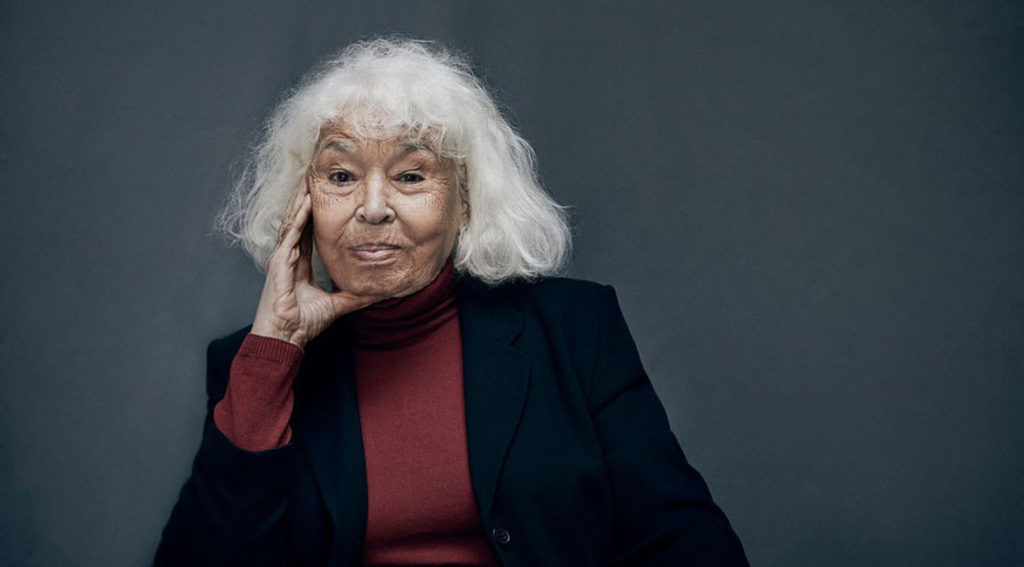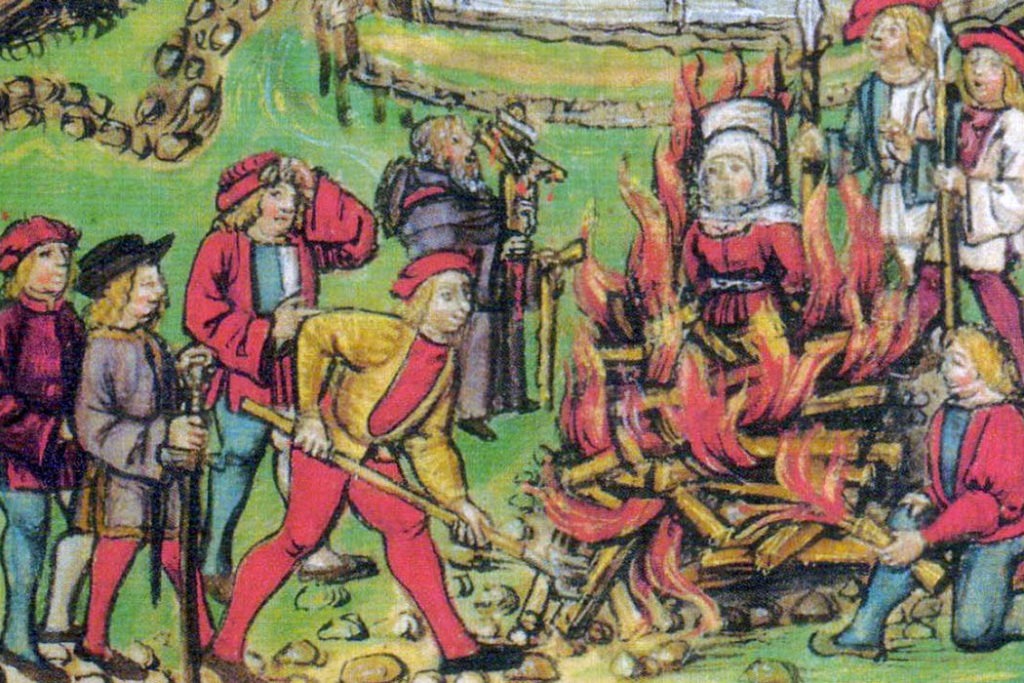“Dee sharm**a.”
How often have you heard this word or read it in a comment? Probably more times than you can remember. It’s a ready-to-go, lazy accusation often thrown on any woman who slips away from our social standards, aka the patriarchal society imposing oppressive social lines.
Any woman who dares to surpass these lines is placed in the framework of “promiscuous” and more or less a sharm**ta. But what does this word really mean? And is its negative perception related to its true meaning, or rooted in an ill-informed ideology?
Women who speak their mind freely, dress freely, or ask for equality, receive this comment on social media, or they’re bombarded by it anywhere they go as if it’s a part of their name.
Back in the Dark Ages of Europe and America, the rebellious women were called witches and burnt. Calling them a heinous word to shame their life choices is the exact same approach of canceling women out who cross the oppressive social limitations. The only difference is how extreme the patriarchy can go against the voice of equality, human rights, and political correctness in a given era of time.
Entertaining Satan: The sugar daddy of witches through history
The Illuminatis were revolutionary nonreligious scientists and artists who didn’t believe in the existence of Satan, but used the biblical concept of Satan as a symbol of rebellion and curiosity. They sanctified the idea as a symbol of their rebellion against the church which crippled the progress of science back then.
During the Dark Ages, women were more oppressed and suffocated than they are today. Men ruled over everything using their “God given” privilege, and therefore allowed to use and abuse women for their benefit.
In the Christian imagination back then, Satan was the source of power and fulfillment that gave “witches” all they desired in exchange for their souls. In our modern concept, we call that “sugar daddy.”
Entertaining Satan and the Culture of Early New England is a book about witchcraft by John Demos. It is a comprehensive study of the various influences surrounding witchcraft in the early American colonies.
The book studies the reports of the witch trials, and looks into the reality behind the myth of these reports.
Based on the author’s point of view, most of the witches who were hung after these trials were loud and stubborn women who showed a sense of rebellion. Most of these women were minor girls who were accused of witchcraft because of peers’ testimonies that were encouraged by jealousy and resentment.
In Radwa Ashour’s novel “The Trilogy of Granada,” Solimah was a physician in Andalusia during the Dark Ages. Her use of chemicals and scientific approaches to treat people caused suspicion, leading her to a witch trial and at the end she was burnt, merely for being scientific. Her knowledge and dedication to science made her a “witch.”
Language as a weapon to oppress women in modern societies
Nawal El Saadawi, an intellectual feminist writer who spoke about several taboos, fought back against the patriarchy many times, and her social media posts are littered with the word discussed here.

Inas El-Deghedy is a revolutionary director who made movies about young women’s sexuality in Egypt. What was she called? You guessed it.
Rania Yousef is a talented actress who dresses fashionably, freely using her feminine charm to be a powerful, influential, and vigorous individual. However, since most of her dresses are “too revealing,” she is labeled as sharm**a in an unfounded fashion.

Any feminist man or woman who acts publicly against the oppressive mentality of our society is given this label. Furthermore, they are accused of being nymphomaniacs or morally corrupt people who seek to break the social morality, and destroy the religious standards that keep society intact.
This serves to reveal that it was never about the woman, but about her freedom of expression.
Any woman who has sex out of marriage falls victim to this, and modern Egyptian women who seek independence and leave the family home to live alone are immediately subjected to being called the same thing. Regardless of whether such acts are acceptable or not, why is it that they are linked to a woman’s promiscuity?
Why is it that the way a woman expresses herself relevant to being called this?
This begs another question. What constitutes as an act to be labeled this insulting word?
The origin of the word
The word is an original Arabic word that means an old and obsolete piece of cloth. It’s still used in Upper Egypt and other rural areas with the same meaning. Using the word to describe a woman, aims to diminish powerful and intellectual women through social cancelation. Why? Patriarchal societies are often terrified of women’s powers because these societies are built to serve man as the superior being, and objectify women. Even though this is not always the case, any woman who tries to slip away from this structure is immediately antagonized, witch-hunted and burnt, or simply called this word, and cast out.
Witch-hunting in modern times
Western cultures still use the term “witch-hunting” to describe the patriarchal attack on strong and intellectual women and feminists. It is to be considered an honor, because witches are the martyrs of the women’s revolution throughout history.
The witch is now a symbol of female warriors all over the world.
Shar**ta-hunting in Arab societies
Just like they hunted and burnt women under the name of witchcraft back then, Arab societies are hunting and canceling women out using this slur to shut them up, oppress them, and make sure they cant escape the patriarchal prison.
It is used to shame women who dress freely to imprison their sexuality and charm. When the word is said, it is often linked to a “loose” or “slu**y” woman, and “someone who is easy.” However, it is time to change the narrative. To shift the idea of openness and perhaps even “looseness” from a negative connotation, whatever that may be, to a symbol of strength, as her choosing how to carry herself is empowering in itself.
De-weaponizing patriarchy
Marginalized societies that face a lot of discrimination tend to take the words used against them and de-weaponize it. So, instead of using the word to demonize and belittle these people, they use it casually to describe themselves with a new positive meaning. Perhaps this is how the war on the word can also be fought. We can use it with an empowering meaning, and strip it of all the negative connotations carried with it.
What’s next?
I personally know women who tiptoe around their actions for fear of being accused of this word. It has become an insult, a degradation of a woman’s value, or if anything, an elimination of it. To live in fear of that word, to feel ashamed by it, to feel “less than” because of it, is to live in a world where a woman is not comfortable in how she presents herself. Why, as men, do we feel entitled to characterize a woman’s value based on her behaviors and choices? This is not to say we should continue to use that word. After all, if it’s not uplifting, than it has no place in society. So, it’s time that we either stop using the word all together, or enable a woman to experience the word differently.
If we cannot abolish the word completely from our dictionary, then when women hear this heinous word, they can think of it this way; are they really promiscuous and morally corrupt? Or, is it a patriarchal accusation based on their free choices in life? If it’s the choices of your free will that led you to hear this word, then know that it means you are strong, and empowered.



